#duchy of lancaster
Text

5 February 2024

The King is being treated for cancer, Buckingham Palace has announced.
It has not said what type of cancer the 75-year-old has but confirmed that it was not prostate cancer. The King was recently treated for prostate enlargement.
King Charles III was crowned at Westminster Abbey in May 2023 alongside his wife, Queen Camilla.
How will the King's duties change while he is treated for cancer?
Buckingham Palace said:
"Regrettably, a number of the King's forthcoming public engagements will have to be rearranged or postponed.
His Majesty would like to apologise to all those who may be disappointed or inconvenienced as a consequence."
It said that he was receiving expert care and "looks forward to returning to full public duty as soon as possible."
While the King is recovering, the Queen is expected to continue attending engagements.
"Her Majesty will continue with a full programme of public duties," Buckingham Palace said.
Despite stepping back from public events, the King will continue with paperwork and private meetings as head of state.
What does the King do?
The King is the UK head of state, but his powers are largely symbolic and ceremonial, and he remains politically neutral.
He receives daily dispatches from the government in a red leather box, including briefings ahead of important meetings, or documents needing his signature.
The prime minister normally meets the King on a Wednesday at Buckingham Palace.
These meetings are completely private, and no official records are kept of what is said.

The King also has a number of official parliamentary roles:
Appointing a government — the leader of the party that wins a general election is usually called to Buckingham Palace, where they are invited to form a government. The King also formally dissolves Parliament before a general election
State Opening and the King's Speech — the King begins the parliamentary year with the State Opening ceremony, where he sets out the government's plans in a speech delivered from the throne in the House of Lords
Royal Assent — when a piece of legislation is passed through Parliament, it must be formally approved by the King in order to become law. The last time Royal Assent was refused was in 1708
In addition, the monarch leads the annual Remembrance event in November at the Cenotaph in London.
The King also hosts visiting heads of state, and regularly meets foreign ambassadors and high commissioners.
For his first state visit, Charles visited Germany, where he became the first British monarch to address the country's parliament, speaking in English and German.
The King then travelled to France for a three-day state visit in September and to Kenya for a four-day state visit in October, where he acknowledged the "abhorrent and unjustifiable acts of violence committed against Kenyans during their independence struggle."
He also delivered the opening address at the COP28 climate conference in Dubai in December, where he said: "The Earth does not belong to us."
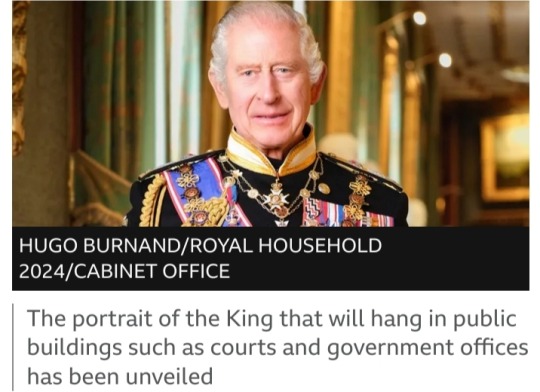
Charles is also head of the Commonwealth, an association of 56 independent countries spanning 2.5 billion people.
He is head of state for 14 of these, known as the Commonwealth realms, as well as the Crown dependencies - the Channel Islands and the Isle of Man.
The Queen supports the King in carrying out his work and undertakes her own public engagements on behalf of the 90 charities she supports.
Where does the Royal Family get its money?
The Royal Family receives an annual payment from the taxpayer, known as the Sovereign Grant, which is used to pay for official expenses, such as the upkeep of properties and staff costs.
The amount is based on a proportion of the profits of the Crown Estate, a property business owned by the monarch but run independently.
It had assets worth £16.5bn in 2022.
The Sovereign Grant was worth £86.3m in 2022-2023, the same as in 2021-2022.
But total spending for the year was £107.5m, a 5% increase on the £102.4m spent the previous year, with more than £20m drawn from financial reserves to cover the shortfall.
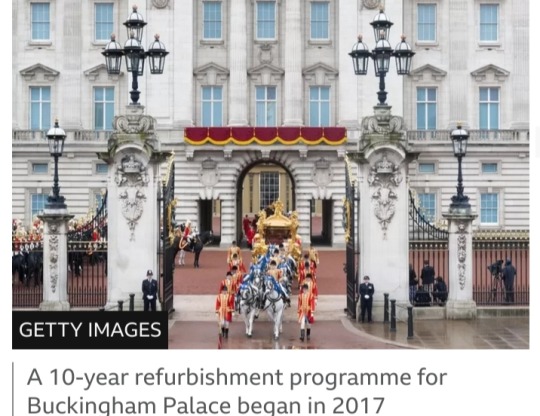
The King also receives money from a private estate called the Duchy of Lancaster, which is passed down from monarch to monarch.
It covers more than 18,000 hectares of land, including property in central London.
Worth £654m, it generates about £20m a year in profits.
The Duke of Cornwall (currently William, Prince of Wales) benefits from the Duchy of Cornwall, which mainly owns land in the south-west of England.
Worth £1bn, it generated a net surplus of £24m in 2022-23.

The King and Prince William receive the profits from the duchies personally, and can spend the money as they wish.
Both voluntarily pay income tax on the proceeds.
In addition, some other Royal Family members have private art, jewellery and stamp collections, which they can sell or use to generate income as they wish.
NOTE: Edited
#King Charles III#His Majesty The King#Prince William#British Royal Family#Queen Camilla#Buckingham Palace#red leather box#Commonwealth realms#Sovereign Grant#Crown Estate#Duchy of Lancaster#Duke of Cornwall
10 notes
·
View notes
Note
“King Charles is not a housing association for distant relatives”
https://www.standard.co.uk/news/uk/king-charles-plan-slimmed-down-monarchy-frogmore-cottage-harry-meghan-b1069700.html
And so it begins…the changes to course correct a bloated operation. Ready for the KC3 haters who were calling him weak the other day to start calling him cruel 🍿
The news came as the King’s visit to France was delayed after extensive rioting on Thursday night. Senior figures have told the Standard that after the period of transition following the coronation, the King, assisted by Queen Camilla, will move to tackle inefficiencies in what is being viewed as a largely overstaffed and outdated system.
Vice-Admiral Sir Tony Johnstone-Burt, Master of the Household, and the Keeper of the Privy Purse Sir Michael Stevens, responsible for finance, will execute the shake-up of what is described as a “top-heavy royal household”. Camilla has been overseeing the fine detail of the King’s plan to ensure that after the coronation the royal household will be run the “Clarence House way”.
One senior figure said: “It is not about cuts, it is about getting the best value for money from those on the payroll. Sometimes less is more.”
Another source added: “The King is not some sort of housing association for distant relatives.” Harry and Meghan were given use of Frogmore Cottage, a five-bedroom mansion on the Windsor estate in 2018, by the late Queen.
[...]
However, the couple’s loss of the cottage, their only British home, is said to be just the “tip of the iceberg”.
It is understood Charles is keen to reduce the number of royals with a financial dependence on the crown, especially if they do not have an active role to play. He wants funds from the Duchy of Lancaster, the portfolio of land, property and assets held in trust for the King, and the sovereign grant that covers the cost of royal travel on official engagements, to be spent more effectively. He also wants to pay his staff competitive salaries and pensions so that he gets the best people for the jobs.
“There will be staff cutbacks. That has already started. The buzz phrase is ‘value for money,’” said the source.
Several members of the extended royal family have enjoyed subsidised palace accommodation, with some having apartments that are being used by their children as “London pads”.
The source said: “Over time, that is going to change. Properties will be let at commercial rates going forward and to people outside the family. Where it is in a palace environment they will of course be security vetted.”
Privately, the King’s senior staff have made it clear to members of the extended family that if they cannot afford where they are living, they should “cut their cloth”. “A lot of practices that have evolved during the last reign will be changing. The King is not heartless or reckless, but if the family members are not part of the core family and not working for the crown, it is fair for them to house themselves and fund themselves,” a senior figure said.
[...]
One insider said: “The staffing has been on the top-heavy side. That has built up over time, with advisers to advisers and so on. That’s all going to stop. The boss wants effective people in effective positions doing effective jobs being paid appropriately.” The senior source added: “Much of what was in place doesn’t make economic sense and will be changed during the new reign.”
Yup. This is about what I expected.
People forget that Charles turned the Duchy of Cornwall into the behemoth it is now. It was struggling and in debt when he took it over from his mother.

#ask#Evening Standard#Robert Jobson#King Charles III#King Charles III in CHARGE!#Chuckie Trips FTW#real estate#frogmore cottage#duchy of lancaster#crown estate#the crown estate
35 notes
·
View notes
Text
“We need a mature democratic meritocracy in our country where rationality is the norm not a tribal winner-takes-all system more reminiscent of the courtly intrigues of a medieval state. We need to divest ourselves of the very notion of inherited privilege that corrupts the entirety of our public life. Where else could you possibly contemplate a legislative second chamber populated by members for life without challenge: automatic inclusion for the old aristocracy, members of the Church of England, Judges and by political appointees through the corruption of patronage? What mature modern state should rely almost exclusively on privately educated individuals, most often from the very same families give or take a parvenu or two, who attend the same universities and take up the same positions in public life as the family have for generations? What mature modern democracy should allow vast landowning and wealth achieved through historical plunder, theft and sequestration concentrated into so few hands in perpetuity?”
3 notes
·
View notes
Quote
The evidence seems to indicate that by 1456 Margaret was working towards the creation of a household faction focused especially on the household and council of the prince of Wales. The withdrawal of the court from Westminster to Kenilworth castle, the heart of Margaret’s west Midlands dower estates, in the summer of 1456, symbolised the shift in the focus of power. This was also reflected in the change of government personnel in October 1456, when the queen’s chancellor, Laurence Booth, was appointed keeper of the privy seal and John Talbot, earl of Shrewsbury, treasurer. Historians have interpreted these actions as a deliberate attempt to create a coherent Lancastrian affinity as an effective power base which might be drawn upon not just for political support but also as a military resource. The value of the duchy of Lancaster as a source of manpower for military retinues had been recognised by John of Gaunt in the 1380s and 1390s, and recent studies have emphasised the crucial role played by leading officials of the duchy in the organisation and financing of Gaunt’s military expeditions. Under both Henry IV and Henry V the Lancastrian affinity retained both its administrative and military functions, now harnessed to royal authority. But the long minority of Henry VI, the survival of Henry V’s widow until 1437 and the provision made under Henry V’s will to pay off massive debts by granting away duchy lands to feoffees diminished the potential value of the duchy to the crown.
Diana Dunn, "The Queen at War: The Role of Margaret of Anjou in the Wars of the Roses" in War and Society in Medieval and Early Modern Britain (ed. Diana Dunn, University of Liverpool Press, 2000)
#margaret of anjou#henry vi#henry v#henry iv#john of gaunt#edward of lancaster#duchy of lancaster#historian: diana dunn
11 notes
·
View notes
Text
"The Parliamentary Rolls record that in 1482, Elizabeth Woodville was granted “the wardships and the marriages of the heirs of her tenants of so much of the Duchy of Lancaster as she [held] to her own use.”
-Michele Seah and Katia Wright, “The Medieval English Queen as a Landowner”, “Women and Economic Power in Premodern European Courts"
#historicwomendaily#elizabeth woodville#is this part of the wardships policy for the Duchy of Lancaster he introduced in 1483? Seems like it#it's such a shame her queenship ended just a year later...it would've been interesting to see how she made use of this grant#15th century#english history#my post#queue
23 notes
·
View notes
Text
1535 -Thomas More

Sir Thomas More (7 February 1478 – 6 July 1535), venerated in the Catholic Church as Saint Thomas More,[7][8] was an English lawyer, judge,[9] social philosopher, author, statesman, and noted Renaissance humanist. He also served Henry VIII as Lord High Chancellor of England from October 1529 to May 1532.[10] He wrote Utopia, published in 1516,[11] which describes the political system of an imaginary island state.
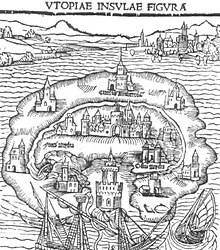
More opposed the Protestant Reformation, directing polemics against the theology of Martin Luther, Huldrych Zwingli, John Calvin and William Tyndale. More also opposed Henry VIII's separation from the Catholic Church, refusing to acknowledge Henry as supreme head of the Church of England and the annulment of his marriage to Catherine of Aragon. After refusing to take the Oath of Supremacy, he was convicted of treason and executed. On his execution, he was reported to have said: "I die the King's good servant, and God's first".
#Jul.6.1535#date of death#Thomas More#English lawyer and politician#Chancellor of the Duchy of Lancaster#Utopia#history today
2 notes
·
View notes
Text
Okay so for years there have been rumors that Harry truly believed he would co-reign when William became King.
There was also the rumor that when William was to inherit the Duchy of Cornwall, Harry truly intended that William would give him half of the profits.
I think there was even a rumor that when William became King, the Duchy of Cornwall was going to Harry since William would have the Duchy of Lancaster.
Now I always thought these were out of the scope because no one can be that idiotic and clueless about their own family’s history and traditions.
But then Harry did an interview for his book and he was talking about how William and Catherine got precedence and how apparently there was this royal hierarchy and it was made clear that Meghan and himself would never be at the top of said hierarchy.
At the time I thought “yeah no way he never clued in to the fact he wasn’t the most important person in the room.”
Now I’m convinced that Harry was never clued in. In fact, Harry was so clueless that he is now under the assumption that “Sussex” is a duchy and also a surname.
I’m waiting for the news that he is upset his family refuses to give him his coffers from his lowly serfs who till his fields.
148 notes
·
View notes
Text
Duchy of Lancaster, Established 1265
Duchy of Cornwall, Established 1337
Duchy of Sussex...does NOT exist
108 notes
·
View notes
Note
Even if there was the minutest possibility of Harry Sussex becoming a working Royal again ,it wouldn’t actually give ‘them’ the billions they feel is their due. William is under no obligation to finance his brother and family out of the Duchy of Cornwall money, that’s for the heir and his family. The king would have to fund their expenses out of the Lancaster Duchy, which wouldn’t be the millions they feel they need, and that money stream is closely monitored and accounted for. I suppose they may have been given a grace and favour place to live, and security when undertaking official duties, but it all stems back to the ‘I can’t believe I’m not getting paid for this’. So they would have to find other income streams which would mean merching and selling the family down the river again. It’s not going to happen and it doesn’t matter how many PR puff pieces the Sussex’s put out about coming back temporarily, no one will work with them, have them as patron, figurehead, or even speak to them for fear it would end up splashed across the tabloids. It takes a very special kind of person who can reach nearly forty years old and think actions have consequences you can’t just ignore, forget or rewrite.
Yep. The Sussexes think that money will solve all their problems. They don't see that character is important too.
I realize this might be a bit unpopular, but I've always felt that if Meghan came out right at the beginning saying "no, I don't want to do the royal work, I just want to be a famous lady who lunches," she probably would have been better liked and better received by the public.
But instead, she lied to everyone, pretended to be someone and something she wasn't, and here we are.
68 notes
·
View notes
Text
its not like anyone needs any more reasons to hate these cunts, but. heres another.
406 notes
·
View notes
Text

Chapter IV. Second Period. — Machinery.
2. — Machinery’s contradiction. — Origin of capital and wages.
From the very fact that machinery diminishes the workman’s toil, it abridges and diminishes labor, the supply of which thus grows greater from day to day and the demand less. Little by little, it is true, the reduction in prices causing an increase in consumption, the proportion is restored and the laborer set at work again: but as industrial improvements steadily succeed each other and continually tend to substitute mechanical operations for the labor of man, it follows that there is a constant tendency to cut off a portion of the service and consequently to eliminate laborers from production. Now, it is with the economic order as with the spiritual order: outside of the church there is no salvation; outside of labor there is no subsistence. Society and nature, equally pitiless, are in accord in the execution of this new decree.
“When a new machine, or, in general, any process whatever that expedites matters,” says J. B. Say, “replaces any human labor already employed, some of the industrious arms, whose services are usefully supplanted, are left without work. A new machine, therefore, replaces the labor of a portion of the laborers, but does not diminish the amount of production, for, if it did, it would not be adopted; it displaces revenue. But the ultimate advantage is wholly on the side of machinery, for, if abundance of product and lessening of cost lower the venal value, the consumer — that is, everybody — will benefit thereby.”
Say’s optimism is infidelity to logic and to facts. The question here is not simply one of a small number of accidents which have happened during thirty centuries through the introduction of one, two, or three machines; it is a question of a regular, constant, and general phenomenon. After revenue has been displaced as Say says, by one machine, it is then displaced by another, and again by another, and always by another, as long as any labor remains to be done and any exchanges remain to be effected. That is the light in which the phenomenon must be presented and considered: but thus, it must be admitted, its aspect changes singularly. The displacement of revenue, the suppression of labor and wages, is a chronic, permanent, indelible plague, a sort of cholera which now appears wearing the features of Gutenberg, now assumes those of Arkwright; here is called Jacquard, there James Watt or Marquis de Jouffroy. After carrying on its ravages for a longer or shorter time under one form, the monster takes another, and the economists, who think that he has gone, cry out: “It was nothing!” Tranquil and satisfied, provided they insist with all the weight of their dialectics on the positive side of the question, they close their eyes to its subversive side, notwithstanding which, when they are spoken to of poverty, they again begin their sermons upon the improvidence and drunkenness of laborers.
In 1750, — M. Dunoyer makes the observation, and it may serve as a measure of all lucubrations of the same sort, — “in 1750 the population of the duchy of Lancaster was 300,000 souls. In 1801, thanks to the development of spinning machines, this population was 672,000 souls. In 1831 it was 1,336,000 souls. Instead of the 40,000 workmen whom the cotton industry formerly employed, it now employs, since the invention of machinery, 1,500,000.”
M. Dunoyer adds that at the time when the number of workmen employed in this industry increased in so remarkable a manner, the price of labor rose one hundred and fifty per cent. Population, then, having simply followed industrial progress, its increase has been a normal and irreproachable fact, — what do I say? — a happy fact, since it is cited to the honor and glory of the development of machinery. But suddenly M. Dunoyer executes an about-face: this multitude of spinning-machines soon being out of work, wages necessarily declined; the population which the machines had called forth found itself abandoned by the machines, at which M. Dunoyer declares: Abuse of marriage is the cause of poverty.
English commerce, in obedience to the demand of the immense body of its patrons, summons workmen from all directions, and encourages marriage; as long as labor is abundant, marriage is an excellent thing, the effects of which they are fond of quoting in the interest of machinery; but, the patronage fluctuating, as soon as work and wages are not to be had, they denounce the abuse of marriage, and accuse laborers of improvidence. Political economy — that is, proprietary despotism — can never be in the wrong: it must be the proletariat.
The example of printing has been cited many a time, always to sustain the optimistic view. The number of persons supported today by the manufacture of books is perhaps a thousand times larger than was that of the copyists and illuminators prior to Gutenberg’s time; therefore, they conclude with a satisfied air, printing has injured nobody. An infinite number of similar facts might be cited, all of them indisputable, but not one of which would advance the question a step. Once more, no one denies that machines have contributed to the general welfare; but I affirm, in regard to this incontestable fact, that the economists fall short of the truth when they advance the absolute statement that the simplification of processes has nowhere resulted in a diminution of the number of hands employed in any industry whatever. What the economists ought to say is that machinery, like the division of labor, in the present system of social economy is at once a source of wealth and a permanent and fatal cause of misery.
In 1836, in a Manchester mill, nine frames, each having three hundred and twenty-four spindles, were tended by four spinners. Afterwards the mules were doubled in length, which gave each of the nine six hundred and eighty spindles and enabled two men to tend them.
There we have the naked fact of the elimination of the workman by the machine. By a simple device three workmen out of four are evicted; what matters it that fifty years later, the population of the globe having doubled and the trade of England having quadrupled, new machines will be constructed and the English manufacturers will reemploy their workmen? Do the economists mean to point to the increase of population as one of the benefits of machinery? Let them renounce, then, the theory of Malthus, and stop declaiming against the excessive fecundity of marriage.
They did not stop there: soon a new mechanical improvement enabled a single worker to do the work that formerly occupied four.
A new three-fourths reduction of manual work: in all, a reduction of human labor by fifteen-sixteenths.
A Bolton manufacturer writes: “The elongation of the mules of our frames permits us to employ but twenty-six spinners where we employed thirty-five in 1837.”
Another decimation of laborers: one out of four is a victim.
These facts are taken from the “Revue Economique” of 1842; and there is nobody who cannot point to similar ones. I have witnessed the introduction of printing machines, and I can say that I have seen with my own eyes the evil which printers have suffered thereby. During the fifteen or twenty years that the machines have been in use a portion of the workmen have gone back to composition, others have abandoned their trade, and some have died of misery: thus laborers are continually crowded back in consequence of industrial innovations. Twenty years ago eighty canal-boats furnished the navigation service between Beaucaire and Lyons; a score of steam-packets has displaced them all. Certainly commerce is the gainer; but what has become of the boating-population? Has it been transferred from the boats to the packets? No: it has gone where all superseded industries go, — it has vanished.
For the rest, the following documents, which I take from the same source, will give a more positive idea of the influence of industrial improvements upon the condition of the workers.
The average weekly wages, at Manchester, is ten shillings. Out of four hundred and fifty workers there are not forty who earn twenty shillings.
The author of the article is careful to remark that an Englishman consumes five times as much as a Frenchman; this, then, is as if a French workingman had to live on two francs and a half a week.
“Edinburgh Review,” 1835: “To a combination of workmen (who did not want to see their wages reduced) we owe the mule of Sharpe and Roberts of Manchester; and this invention has severely punished the imprudent unionists.”
Punished should merit punishment. The invention of Sharpe and Roberts of Manchester was bound to result from the situation; the refusal of the workmen to submit to the reduction asked of them was only its determining occasion. Might not one infer, from the air of vengeance affected by the “Edinburgh Review,” that machines have a retroactive effect?
An English manufacturer: “The insubordination of our workmen has given us the idea of dispensing with them. We have made and stimulated every imaginable effort of the mind to replace the service of men by tools more docile, and we have achieved our object. Machinery has delivered capital from the oppression of labor. Wherever we still employ a man, we do so only temporarily, pending the invention for us of some means of accomplishing his work without him.”
What a system is that which leads a business man to think with delight that society will soon be able to dispense with men! Machinery has delivered capital from the oppression of labor! That is exactly as if the cabinet should undertake to deliver the treasury from the oppression of the taxpayers. Fool! though the workmen cost you something, they are your customers: what will you do with your products, when, driven away by you, they shall consume them no longer? Thus machinery, after crushing the workmen, is not slow in dealing employers a counter-blow; for, if production excludes consumption, it is soon obliged to stop itself.
During the fourth quarter of 1841 four great failures, happening in an English manufacturing city, threw seventeen hundred and twenty people on the street.
These failures were caused by over-production, — that is, by an inadequate market, or the distress of the people. What a pity that machinery cannot also deliver capital from the oppression of consumers! What a misfortune that machines do not buy the fabrics which they weave! The ideal society will be reached when commerce, agriculture, and manufactures can proceed without a man upon earth!
In a Yorkshire parish for nine months the operatives have been working but two days a week.
Machines!
At Geston two factories valued at sixty thousand pounds sterling have been sold for twenty-six thousand. They produced more than they could sell.
Machines!
In 1841 the number of children under thirteen years of age engaged in manufactures diminishes, because children over thirteen take their place.
Machines! The adult workman becomes an apprentice, a child, again: this result was foreseen from the phase of the division of labor, during which we saw the quality of the workman degenerate in the ratio in which industry was perfected.
In his conclusion the journalist makes this reflection: “Since 1836 there has been a retrograde movement in the cotton industry”; — that is, it no longer keeps up its relation with other industries: another result foreseen from the theory of the proportionality of values.
Today workmen’s coalitions and strikes seem to have stopped throughout England, and the economists rightly rejoice over this return to order, — let us say even to common sense. But because laborers henceforth — at least I cherish the hope — will not add the misery of their voluntary periods of idleness to the misery which machines force upon them, does it follow that the situation is changed? And if there is no change in the situation, will not the future always be a deplorable copy of the past?
The economists love to rest their minds on pictures of public felicity: it is by this sign principally that they are to be recognized, and that they estimate each other. Nevertheless there are not lacking among them, on the other hand, moody and sickly imaginations, ever ready to offset accounts of growing prosperity with proofs of persistent poverty.
M. Theodore Fix thus summed up the general situation in December, 1844:
The food supply of nations is no longer exposed to those terrible disturbances caused by scarcities and famines, so frequent up to the beginning of the nineteenth century. The variety of agricultural growths and improvements has abolished this double scourge almost absolutely. The total wheat crop in France in 1791 was estimated at about 133,000,000 bushels, which gave, after deducting seed, 2.855 bushels to each inhabitant. In 1840 the same crop was estimated at 198,590,000 bushels, or 2.860 bushels to each individual, the area of cultivated surface being almost the same as before the Revolution.... The rate of increase of manufactured goods has been at least as high as that of food products; and we are justified in saying that the mass of textile fabrics has more than doubled and perhaps tripled within fifty years. The perfecting of technical processes has led to this result....
Since the beginning of the century the average duration of life has increased by two or three years, — an undeniable sign of greater comfort, or, if you will, a diminution of poverty.
Within twenty years the amount of indirect revenue, without any burdensome change in legislation, has risen from $40,000,000 francs to 720,000,000, — a symptom of economic, much more than of fiscal, progress.
On January 1, 1844, the deposit and consignment office owed the savings banks 351,500,000 francs, and Paris figured in this sum for 105,000,000. Nevertheless the development of the institution has taken place almost wholly within twelve years, and it should be noticed that the 351,500,000 francs now due to the savings banks do not constitute the entire mass of economies effected, since at a given time the capital accumulated is disposed of otherwise.... In 1843, out of 320,000 workmen and 80,000 house-servants living in the capital, 90,000 workmen have deposited in the savings banks 2,547,000 francs, and 34,000 house-servants 1,268,000 francs.
All these facts are entirely true, and the inference to be drawn from them in favor of machines is of the exactest, — namely, that they have indeed given a powerful impetus to the general welfare. But the facts with which we shall supplement them are no less authentic, and the inference to be drawn from these against machines will be no less accurate, — to wit, that they are a continual cause of pauperism. I appeal to the figures of M. Fix himself.
Out of 320,000 workmen and 80,000 house-servants residing in Paris, there are 230,000 of the former and 46,000 of the latter — a total of 276,000 — who do not deposit in the savings banks. No one would dare pretend that these are 276,000 spendthrifts and ne’er-do-weels who expose themselves to misery voluntarily. Now, as among the very ones who make the savings there are to be found poor and inferior persons for whom the savings bank is but a respite from debauchery and misery, we may conclude that, out of all the individuals living by their labor, nearly three-fourths either are imprudent, lazy, and depraved, since they do not deposit in the savings banks, or are too poor to lay up anything. There is no other alternative. But common sense, to say nothing of charity, permits no wholesale accusation of the laboring class: it is necessary, therefore, to throw the blame back upon our economic system. How is it that M. Fix did not see that his figures accused themselves?
They hope that, in time, all, or almost all, laborers will deposit in the savings banks. Without awaiting the testimony of the future, we may test the foundations of this hope immediately.
According to the testimony of M. Vee, mayor of the fifth arrondissement of Paris, “the number of needy families inscribed upon the registers of the charity bureaus is 30,000, — which is equivalent to 65,000 individuals.” The census taken at the beginning of 1846 gave 88,474. And poor families not inscribed, — how many are there of those? As many. Say, then, 180,000 people whose poverty is not doubtful, although not official. And all those who live in straitened circumstances, though keeping up the appearance of comfort, — how many are there of those? Twice as many, — a total of 360,000 persons, in Paris, who are somewhat embarrassed for means.
“They talk of wheat,” cries another economist, M. Louis Leclerc, “but are there not immense populations which go without bread? Without leaving our own country, are there not populations which live exclusively on maize, buckwheat, chestnuts?”
M. Leclerc denounces the fact: let us interpret it. If, as there is no doubt, the increase of population is felt principally in the large cities, — that is, at those points where the most wheat is consumed, — it is clear that the average per head may have increased without any improvement in the general condition. There is no such liar as an average.
“They talk,” continues the same writer, “of the increase of indirect consumption. Vain would be the attempt to acquit Parisian adulteration: it exists; it has its masters, its adepts, its literature, its didactic and classic treatises.... France possessed exquisite wines; what has been done with them? What has become of this splendid wealth? Where are the treasures created since Probus by the national genius? And yet, when one considers the excesses to which wine gives rise wherever it is dear, wherever it does not form a part of the regular life of the people; when in Paris, capital of the kingdom of good wines, one sees the people gorging themselves with I know not what, — stuff that is adulterated, sophisticated, sickening, and sometimes execrable, — and well-to-do persons drinking at home or accepting without a word, in famous restaurants, so-called wines, thick, violet-colored, and insipid, flat, and miserable enough to make the poorest Burgundian peasant shudder, — can one honestly doubt that alcoholic liquids are one of the most imperative needs of our nature?
I quote this passage at length, because it sums up in relation to a special case all that could be said upon the inconveniences of machinery. To the people it is with wine as with fabrics, and generally with all goods and merchandise created for the consumption of the poor. It is always the same deduction: to reduce by some process or other the cost of manufacture, in order, first, to maintain advantageously competition with more fortunate or richer rivals; second, to serve the vast numbers of plundered persons who cannot disregard price simply because the quality is good. Produced in the ordinary ways, wine is too expensive for the mass of consumers; it is in danger of remaining in the cellars of the retailers. The manufacturer of wines gets around the difficulty: unable to introduce machinery into the cultivation of the vine, he finds a means, with the aid of some accompaniments, of placing the precious liquid within the reach of all. Certain savages, in their periods of scarcity, eat earth; the civilized workman drinks water. Malthus was a great genius.
As far as the increase of the average duration of life is concerned, I recognize the fact, but at the same time I declare the observation incorrect. Let us explain that. Suppose a population of ten million souls: if, from whatever cause you will, the average life should increase five years for a million individuals, mortality continuing its ravages at the same rate as before among the nine other millions, it would be found, on distributing this increase among the whole, that on an average six months had been added to the life of each individual. It is with the average length of life, the so-called indicator of average comfort, as with average learning: the level of knowledge does not cease to rise, which by no means alters the fact that there are today in France quite as many barbarians as in the days of Francois I. The charlatans who had railroad speculation in view made a great noise about the importance of the locomotive in the circulation of ideas; and the economists, always on the lookout for civilized stupidities, have not failed to echo this nonsense. As if ideas, in order to spread, needed locomotives! What, then, prevents ideas from circulating from the Institute to the Faubourgs Saint-Antoine and Saint-Marceau, in the narrow and wretched streets of Old Paris and the Temple Quarter, everywhere, in short, where dwells this multitude even more destitute of ideas than of bread? How happens it that between a Parisian and a Parisian, in spite of the omnibus and the letter-carrier, the distance is three times greater today than in the fourteenth century?
The ruinous influence of machinery on social economy and the condition of the laborers is exercised in a thousand ways, all of which are bound together and reciprocally labelled: cessation of labor, reduction of wages, over-production, obstruction of the market, alteration and adulteration of products, failures, displacement of laborers, degeneration of the race, and, finally, diseases and death.
M. Théodore Fix has remarked himself that in the last fifty years the average stature of man, in France, has diminished by a considerable fraction of an inch. This observation is worth his previous one: upon whom does this diminution take effect?
In a report read to the Academy of Moral Sciences on the results of the law of March 22, 1841, M. Leon Faucher expressed himself thus:
Young workmen are pale, weak, short in stature, and slow to think as well as to move. At fourteen or fifteen years they seem no more developed than children of nine or ten years in the normal state. As for their intellectual and moral development, there are some to be found who, at the age of thirteen, have no notion of God, who have never heard of their duties, and whose first school of morality was a prison.
That is what M. Léon Faucher has seen, to the great displeasure of M. Charles Dupin, and this state of things he declares that the law of March 22 is powerless to remedy. And let us not get angry over this impotence of the legislator: the evil arises from a cause as necessary for us as the sun; and in the path upon which we have entered, anger of any kind, like palliatives of any kind, could only make our situation worse. Yes, while science and industry are making such marvellous progress, it is a necessity, unless civilization’s centre of gravity should suddenly change, that the intelligence and comfort of the proletariat be diminished; while the lives of the well-to-do classes grow longer and easier, it is inevitable that those of the needy should grow harder and shorter. This is established in the writings of the best — I mean, the most optimistic — thinkers.
According to M. de Morogues, 7,500,000 men in France have only ninety-one francs a year to spend, 25 centimes a day. Cing sous! cing sous! (Five cents! five cents!). There is something prophetic, then, in this odious refrain.
In England (not including Scotland and Ireland) the poor-rate was: 1801. £4,078,891 for a population of 8,872,980 1818. £7,870,801 ” ” ” ” 11,978,875 1833. £8,000,000 ” ” ” ” 14,000,000
The progress of poverty, then, has been more rapid than that of population; in face of this fact, what becomes of the hypotheses of Malthus? And yet it is indisputable that during the same period the average comfort increased: what, then, do statistics signify?
The death-rate for the first arrondissement of Paris is one to every fifty-two inhabitants, and for the twelfth one to every twenty-six. Now, the latter contains one needy person to every seven inhabitants, while the former has only one to every twenty-eight. That does not prevent the average duration of life, even in Paris, from increasing, as M. Fix has very correctly observed.
At Mulhouse the probabilities of average life are twenty-nine years for children of the well-to-do class and TWO years for those of the workers; in 1812 the average life in the same locality was twenty-five years, nine months, and twelve days, while in 1827 it was not over twenty-one years and nine months. And yet throughout France the average life is longer. What does this mean?
M. Blanqui, unable to explain so much prosperity and so much poverty at once, cries somewhere: “Increased production does not mean additional wealth.... Poverty, on the contrary, becomes the wider spread in proportion to the concentration of industries. There must be some radical vice in a system which guarantees no security either to capital or labor, and which seems to multiply the embarrass-ments of producers at the same time that it forces them to multiply their products.”
There is no radical vice here. What astonishes M. Blanqui is simply that of which the Academy to which he belongs has asked a determination, — namely, the oscillations of the economic pendulum, VALUE, beating alternately and in regular time good and evil, until the hour of the universal equation shall strike. If I may be permitted another comparison, humanity in its march is like a column of soldiers, who, starting in the same step and at the same moment to the measured beating of the drum, gradually lose their distances. The whole body advances, but the distance from head to tail grows ever longer; and it is a necessary effect of the movement that there should be some laggards and stragglers.
But it is necessary to penetrate still farther into the antinomy. Machines promised us an increase of wealth; they have kept their word, but at the same time endowing us with an increase of poverty. They promised us liberty; I am going to prove that they have brought us slavery.
I have stated that the determination of value, and with it the tribulations of society, began with the division of industries, without which there could be no exchange, or wealth, or progress. The period through which we are now passing — that of machinery — is distinguished by a special characteristic, — WAGES.
Wages issued in a direct line from the employment of machinery, — that is, to give my thought the entire generality of expression which it calls for, from the economic fiction by which capital becomes an agent of production. Wages, in short, coming after the division of labor and exchange, is the necessary correlative of the theory of the reduction of costs, in whatever way this reduction may be accomplished. This genealogy is too interesting to be passed by without a few words of explanation.
The first, the simplest, the most powerful of machines is the workshop.
Division simply separates the various parts of labor, leaving each to devote himself to the specialty best suited to his tastes: the workshop groups the laborers according to the relation of each part to the whole. It is the most elementary form of the balance of values, undiscoverable though the economists suppose this to be. Now, through the workshop, production is going to increase, and at the same time the deficit.
Somebody discovered that, by dividing production into its various parts and causing each to be executed by a separate workman, he would obtain a multiplication of power, the product of which would be far superior to the amount of labor given by the same number of workmen when labor is not divided.
Grasping the thread of this idea, he said to himself that, by forming a permanent group of laborers assorted with a view to his special purpose, he would produce more steadily, more abundantly, and at less cost. It is not indispensable, however, that the workmen should be gathered into one place: the existence of the workshop does not depend essentially upon such contact. It results from the relation and proportion of the different tasks and from the common thought directing them. In a word, concentration at one point may offer its advantages, which are not to be neglected; but that is not what constitutes the workshop
This, then, is the proposition which the speculator makes to those whose collaboration he desires: I guarantee you a perpetual market for your products, if you will accept me as purchaser or middle-man. The bargain is so clearly advantageous that the proposition cannot fail of acceptance. The laborer finds in it steady work, a fixed price, and security; the employer, on the other hand, will find a readier sale for his goods, since, producing more advantageously, he can lower the price; in short, his profits will be larger because of the mass of his investments. All, even to the public and the magistrate, will congratulate the employer on having added to the social wealth by his combinations, and will vote him a reward.
But, in the first place, whoever says reduction of expenses says reduction of services, not, it is true, in the new shop, but for the workers at the same trade who are left outside, as well as for many others whose accessory services will be less needed in future. Therefore every establishment of a workshop corresponds to an eviction of workers: this assertion, utterly contradictory though it may appear, is as true of the workshop as of a machine.
The economists admit it: but here they repeat their eternal refrain that, after a lapse of time, the demand for the product having increased in proportion to the reduction of price, labor in turn will come finally to be in greater demand than ever. Undoubtedly, WITH TIME, the equilibrium will be restored; but, I must add again, the equilibrium will be no sooner restored at this point than it will be disturbed at another, because the spirit of invention never stops, any more than labor. Now, what theory could justify these perpetual hecatombs?” When we have reduced the number of toilers,” wrote Sismondi, “to a fourth or a fifth of what it is at present, we shall need only a fourth or a fifth as many priests, physicians, etc. When we have cut them off altogether, we shall be in a position to dispense with the human race.” And that is what really would happen if, in order to put the labor of each machine in proportion to the needs of consumption, — that is, to restore the balance of values continually destroyed, — it were not necessary to continually create new machines, open other markets, and consequently multiply services and displace other arms. So that on the one hand industry and wealth, on the other population and misery, advance, so to speak, in procession, one always dragging the other after it.
I have shown the contractor, at the birth of industry, negotiating on equal terms with his comrades, who have since become his workmen. It is plain, in fact, that this original equality was bound to disappear through the advantageous position of the master and the dependence of the wage-workers. In vain does the law assure to each the right of enterprise, as well as the faculty to labor alone and sell one’s products directly. According to the hypothesis, this last resource is impracticable, since it was the object of the workshop to annihilate isolated labor. And as for the right to take the plough, as they say, and go at speed, it is the same in manufactures as in agriculture; to know how to work is nothing, it is necessary to arrive at the right time; the shop, as well as the land, is to the first comer. When an establishment has had the leisure to develop itself, enlarge its foundations, ballast itself with capital, and assure itself a body of patrons, what can the workman who has only his arms do against a power so superior? Hence it was not by an arbitrary act of sovereign power or by fortuitous and brutal usurpation that the guilds and masterships were established in the Middle Ages: the force of events had created them long before the edicts of kings could have given them legal consecration; and, in spite of the reform of ’89, we see them reestablishing themselves under our eyes with an energy a hundred times more formidable. Abandon labor to its own tendencies, and the subjection of three-fourths of the human race is assured.
But this is not all. The machine, or the workshop, after having degraded the laborer by giving him a master, completes his degeneracy by reducing him from the rank of artisan to that of common workman.
Formerly the population on the banks of the Saone and Rhone was largely made up of watermen, thoroughly fitted for the conduct of canal-boats or row-boats. Now that the steam-tug is to be found almost everywhere, most of the boatmen, finding it impossible to get a living at their trade, either pass three-fourths of their life in idleness, or else become stokers.
If not misery, then degradation: such is the last alternative which machinery offers to the workman. For it is with a machine as with a piece of artillery: the captain excepted, those whom it occupies are servants, slaves.
Since the establishment of large factories, a multitude of little industries have disappeared from the domestic hearth: does any one believe that the girls who work for ten and fifteen cents have as much intelligence as their ancestors?
“After the establishment of the railway from Paris to Saint Germain,” M. Dunoyer tells us, “there were established between Pecq and a multitude of places in the more or less immediate vicinity such a number of omnibus and stage lines that this establishment, contrary to all expectation, has considerably increased the employment of horses.”
Contrary to all expectation! It takes an economist not to expect these things. Multiply machinery, and you increase the amount of arduous and disagreeable labor to be done: this apothegm is as certain as any of those which date from the deluge. Accuse me, if you choose, of ill-will towards the most precious invention of our century, — nothing shall prevent me from saying that the principal result of railways, after the subjection of petty industry, will be the creation of a population of degraded laborers, — signalmen, sweepers, loaders, lumpers, draymen, watchmen, porters, weighers, greasers, cleaners, stokers, firemen, etc. Two thousand miles of railway will give France an additional fifty thousand serfs: it is not for such people, certainly, that M. Chevalier asks professional schools.
Perhaps it will be said that, the mass of transportation having increased in much greater proportion than the number of day-laborers, the difference is to the advantage of the railway, and that, all things considered, there is progress. The observation may even be generalized and the same argument applied to all industries.
But it is precisely out of this generality of the phenomenon that springs the subjection of laborers. Machinery plays the leading role in industry, man is secondary: all the genius displayed by labor tends to the degradation of the proletariat. What a glorious nation will be ours when, among forty millions of inhabitants, it shall count thirty-five millions of drudges, paper-scratchers, and flunkies!
With machinery and the workshop, divine right — that is, the principle of authority — makes its entrance into political economy. Capital, Mastership, Privilege, Monopoly, Loaning, Credit, Property, etc., — such are, in economic language, the various names of I know not what, but which is otherwise called Power, Authority, Sovereignty, Written Law, Revelation, Religion, God in short, cause and principle of all our miseries and all our crimes, and who, the more we try to define him, the more eludes us.
Is it, then, impossible that, in the present condition of society, the workshop with its hierarchical organization, and machinery, instead of serving exclusively the interests of the least numerous, the least industrious, and the wealthiest class, should be employed for the benefit of all?
That is what we are going to examine.
#organization#revolution#anarchism#daily posts#communism#anti capitalist#anti capitalism#late stage capitalism#anarchy#anarchists#libraries#leftism#social issues#economy#economics#climate change#anarchy works#environmentalism#environment#solarpunk#anti colonialism#mutual aid#the system of economic contradictions#the philosophy of poverty#volume i#pierre-joseph proudhon#pierre joseph proudhon
17 notes
·
View notes
Note
I’m the anon who wrote that your post resonated with my observation/intuition. I thought I would send in a lengthy list of things I think may be going on behind the scenes. These things may “fit” with your reading:
1) Harry has massively betrayed William and Catherine. From the Oprah interview to the accusation of physical assault in his book to gossip/lies planted in the press, he has inflicted enormous pain on them and William has actually lost his brother. In addition to losing his mother in tragic circumstances, over the last few years he has grieved two grandparents and his brother.
2) Years ago, Charles wanted to find a solution to appease the Megxit half-in/half-out demands. William and the Queen were in agreement this was not viable and chose to preserve the monarchy over Harry’s feelings. Charles wants Harry back. He has very little to no real concern for William and Catherine. It’s only about him and what he envisioned his reign would look like. I also agree with another anon that there is a triangulation layer to this.
3) Action to neutralize the threat that is Harry was postponed while the Queen was ill and grieving. It was William’s expectation that action would be taken after her death. Instead, Charles has flipped the script and wants to reverse the Megxit decision.
4) Neutralizing Harry would involve releasing dirt from Harry’s past that would end him. Charles will not do it because he covered the dirt at the time, so his reputation would also suffer badly. William wants it all out. Charles wants to keep it all hidden. It troubles William because he doesn’t want to go along with further cover ups. He feels it threatens the monarchy and his reputation as well. This is out of his control, and it causes him stress.
5) Planning for the coronation brought many huge disagreements, with Charles using demands, guilt, and manipulation in private and in the press to try forcing William into agreement on Harry’s full involvement. There was a compromise, but Charles was not satisfied.
6) William accepts Charles making Camilla queen but he doesn’t like it. The whole situation is sordid, and he has had to go along with things he felt compromised his mother’s legacy. Don’t underestimate Camilla and her intentions.
7) Charles invited William to Birkhall to dine with him the night after the Queen’s death. He told him there he would be making him Prince of Wales immediately. This was intended as a “gift,” even though it benefitted Charles and withholding it would have been ludicrous. The gift had strings attached. He expected William to go along with him in all his plans and priorities. So whenever William resists, he can think or say “What more could you want? You’re ungrateful. I’ve given you everything!” That is not true, as he hasn’t given loyalty or support, but it’s how Charles sees things.
8) Those plans and priorities include increasing the popularity and public adoration of King Charles and Queen Camilla, and the expectation is that the Waleses will use their public image to aid in this effort. Charles wants them to join themselves to him publicly. He wants continual endorsement from William (the coronation oath wasn’t enough for him) as well as “happy family” PR. But Charles has a lot of skeletons in his closet and William is wise to keep their public images separate.
9) Aside from the expectation that William will aid Charles and Camilla’s PR, there’s also the expectation that he will support and help in bringing Harry back. What you said about Travalyst and Earthshot is unfortunately plausible. I also believe that Charles feels the Duchy of Cornwall offers enough funding for William to share with Harry. He supports his siblings with the Duchy of Lancaster and wants William to support Harry financially. William will not, for many reasons.
10) Charles is not happy about handing over the Duchy of Cornwall to William. He feels personally offended with every decision William makes that isn’t exactly as he did things.
11) There are some very messy courtiers in Charles’s household.
That’s about it. I’m sorry for the length. Charles is focused on his and Camilla’s popularity and legacy as well as his “darling boy” Harry’s return. There are currently enormous threats to the monarchy, and they concern and stress William very much, but Charles’s personal feelings, desires and ideals trump everything. “I am KING!”
Only time will tell if the monarchy survives this.
All alleged, my opinions, not fact, etc.
Hi Nonny,
Thank you for coming back and explaining all your thoughts. I agree with a lot of them. Harry has betrayed his family, Charles was appeasing them for quite some time (I'm not sure of the current state of affairs), the BRF has been effective in greyrocking Harry but have been reluctant to release dirt on him or on Meghan, Charles does seem to be focused on increasing his and Camilla's popularity, and he does seem to expect William to not only welcome Harry back but to support Harry and his family financially, etc and so on.
I think that the monarchy will survive this, if only because the alternative is so involved and a lot of work, but I do wonder what sort of reputation it will have by the time the crown is passed on to William. I think he will have to do a lot of work on repairing things before he can start to build his legacy as King, so I expect his reign to have a slow and rocky start, simply because of how it will be left by King Charles III. I hope I am wrong, but I just can't see King Charles passing on the feelings of respect and affection for the crown that he inherited from his mother, the late Queen. I don't see him as having her sense of duty, and it was her sense of duty that enabled the crown to be held in such solid respect and affection when she passed.
62 notes
·
View notes
Text
“Duchy accounts suggest it has collected £61.8m in bona vacantia funds over the last decade. Of those, only £9.3m or 15% of the total has gone to charities. Now there are fresh questions about a further £14m, earmarked for charitable causes, but seemingly not donated. The duchy is refusing to explain why the funds have not been transferred to charities.”
0 notes
Text

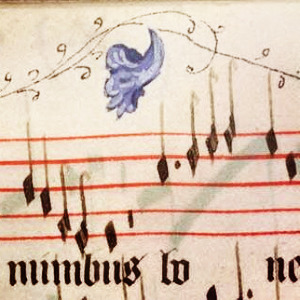
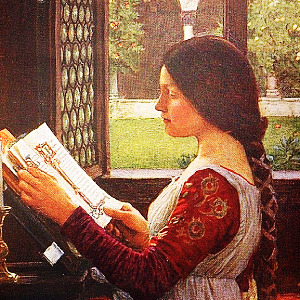


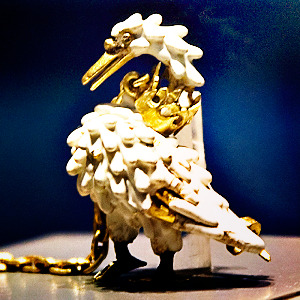


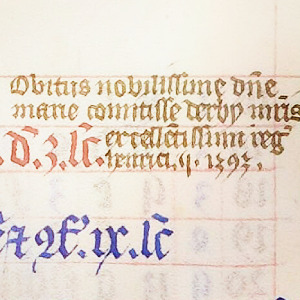
Mary de Bohun, Countess of Derby
Mary de Bohun was probably born around 22 December 1370 to Humphrey de Bohun and Joan Fitzalan, Earl and Countess of Hereford. As her father had no son, she and her elder sister, Eleanor, became the heiresses of his wealthy earldom. Eleanor married Thomas of Woodstock, the youngest son of Edward III, and according to Froissart, Woodstock intended Mary to enter a nunnery so he would inherit the entire earldom. This was not to be. In late 1380 or early 1381, Mary married John of Gaunt's son and heir, Henry Bolingbroke, the future Henry IV. The marriage appears to have happy as they shared similar interests and often spent time together. The story that Mary gave birth to a short-lived son in 1382, when she would have been only 11, is now believed to be a myth brought into being by a mistranslated text referring to her sister giving birth to a son. Mary's first child was the future Henry V, born 16 September 1386. Four more children soon followed: Thomas, Duke of Clarence (29 September 1387), John, Duke of Bedford (20 June 1389), Humphrey, Duke of Gloucester (3 October 1390) and Blanche, Electress Palatine (25 February 1392). Mary died either giving birth to her sixth and final child, Philippa, Queen of Norway, Denmark and Sweden, or from complications afterwards, on 1 July 1394, when she was only 23 years old. Mary was buried on 6 July 1394 in the Church of the Annunciation of Our Lady of the Newarke in Leicester. The church and her tomb was destroyed in the Reformation.
A little of her personality can be reconstructed. She was interested in music, playing the harp or cithara, and she bought a ruler to line parchment for musical notation, suggesting she may have also composed music.Such an interest was shared by both her husband and eldest son, one or both of whom were the 'Roy Henry' who composed two mass movements. She maintained a close contacts with other noblewomen, not only her mother and sister, but Constanza of Castile, Katherine Swynford and Margaret Bagot, suggesting that she may well have been more politically aware and involved than what is generally believed. She may have also continued the de Bohun of patronising manuscript illuminators. A number of illuminated manuscripts believed to belong to her or her sister are some of the most celebrated late medieval English manuscripts.
Mary never became Duchess of Lancaster, let alone Queen of England, but it was her family's badge of the swan that became associated with the Lancastrian kings, most famously borne by her eldest son, Henry V. One of Henry V's first acts as king was to order a copper effigy for her tomb, while in the charter of his Syon foundation, he required that the soul of "Mary … our most dear mother", among others, be prayed for in a daily divine service. Her third son, John, recorded her anniversary into his personal breviary, while her daughters may have each carried manuscripts belonging to her with them when they left England to be married. Despite the brevity of her life, Mary was remembered long after her death.
Sources: Paris, Bibliothèque Nationale, MS Lat. 17294, Chris Given-Wilson, Henry IV (Yale University Press 2017), Ian Mortimer, The Fears of Henry IV (Vintage 2008), John Matusiak, Henry V (Routledge 2012), Calendar of the Patent Rolls: Henry IV. Vol. I. A. D. 1399-1401, Calendar of Close Rolls 1381-1385, Rebecca Holdorph, 'My Well-Beloved Companion': Men, Women, Marriage and Power in the Earldom and Duchy of Lancaster, 1265-1399, University of Southampton, PhD Thesis, Marina Vidas, The Cophenhagen Bohun Hours: Women, Representation and Reception in Fourteenth Century England (Museum Tusculanum Press 2019)
79 notes
·
View notes
Note
Rant coming. I am tired of hearing 👑The PoW has to fund the harkles. The Duchy of Cornwall only funds the PoW and his family. This means ONLY The Prince and Princess of Wales, Prince George, Princess Charlotte and Prince Louis. The Duchy of Lancaster (King) will fund all other family members. P Andrew was the late QEII's son and she funded him not Charles, now Harry as the King's son will be funded out of the Duchy of Lancaster. This is for mm, squad, or reporters who lurk on Tumblr for a story
Great rant! The problem is people speak on things they know nothing about…..and then people believe them…the fact is…Harry is not a working royal….he isn’t getting anything….❤️
102 notes
·
View notes
Note
was edward IV considering waging war with France when he died?
Hi! From what I understand*: no, he probably wasn't considering it.
The Treaty of Arras, resulting in the deprivation of his annual pension from France, appears to have provoked a visceral reaction in him: contemporaries report both anger and melancholy. In February, Parliament granted him a subsidy 'for the hasty and necessary defence' of the realm', money was demanded from the clergy, and he took measures to strengthen the fortresses in the Calais Pale. He also tried to stir Brittany against France by promising to send them 4,000 archers for three months - though it must be said that there was no mention from Edward regarding a proposed English invasion of France during that time. He was clearly angered, but it's difficult to know if he was genuinely considering waging full-scale war, or if it was an impulsive overreaction or sudden need for defense (perhaps both), or merely a tried-and-tested ploy to get money, which he had a track record of doing in the 1460s and which would have been needed now that his French pension was cut off.
(Fun fact: this entire drama resulted in the creation of 'The Promise of Matrimony' in 1483, the first known piece of printed political propaganda in English history.)
In any case, whatever his original intentions, Edward IV evidently seems to have decided to prioritize his continued peace with France by the end of his life. As Charles Ross says:
"If an immediate attack upon France was seriously contemplated for a time, the mood did not last long. By March (1483)**, when relations at sea between France and England had deteriorated badly, there are clear signs that Edward had changed course and was making every effort to preserve the truce with France."
There was a mission from the Garter King of Arms to France in February, likely connected to this. More strikingly, by the time Edward fell sick, he was actively making efforts to put an end to seizures and reprisals against French shipping - which, if we judge how French actions intensified after his death, seem to have been fairly successful.
Long story short, if Edward IV actually considered waging war against France in the beginning of 1483, he seems to have soon changed his mind and decided to prioritize his truce with them.*** Unfortunately, we'll never know how it would have gone down had he lived for a few years longer.
Because Edward IV died so soon after, and the situation remained unresolved, the Treaty of Arras is often magnified by historians as a sort of definite endgame of his foreign policy. Imo, this is a rather dramatic and retrospective reading of the situation. His foreign policy had worked reasonably well (or at least, to his satisfaction) up till that point. Arras certainly was a major setback and deeply aggrieved him - but the fact remains that had he lived longer, this is unlikely to be anything other than a temporary setback for both him and England**** (a trend that was fairly common across the reigns of many other medieval rulers). In this case, we already know for a fact that the conflict between France and Burgundy had by no means died down after Arras: it was, in fact, just as bad. Maximilian continued to desperately appeal to Edward IV for aid mere weeks after signing the Treaty (which Edward would have probably given had he not died soon after) and would later appeal to Richard III as well. More importantly, Louis XI himself would die just a few months after Edward, leading to a major change in the structure of European politics, and we don't know how this situation would have unfolded had Edward still been alive at the time. Nor do we know how it would have unfolded had England's domestic situation remained stable for his successor after his death (aka: had his brother not decided to usurp the throne from his preteen nephew and kickstart yet another civil war within his own dynasty). He died at an impasse, and I think that more than anything should be emphasized - but by no accounts should it be taken to mean that he left his heir in a singularly complicated foreign situation. He didn't - at least, not compared to the vast majority of his predecessors - and at any event, like I mentioned, the situation in wider Europe was also rapidly changing at the time. Nor was England "isolated": among others, they did have a treaty with Brittany, and more importantly, there were strides towards a greater alliance with unified Spain: negotiations for a betrothal of his daughter Katherine to Isabella and Ferdinand's heir had been ratified in 1482***** and were ongoing (or already completed, I'm not sure) when he died, leaving the door wide open for a closer alliance that would be pursued by future English rulers, particularly since we know Spain was on the lookout for allies against France during that time as well and did view England as a potential ally.
*Correct me if I'm wrong
**Ross says "1482" in his biography, but that's probably a typo considering he was talking about events after the Treaty of Arras.
***It's often said that Richard III inherited a "naval war" with France from his brother, but as we can see, he didn't. He inherited naval tensions (the word choice is important) which Edward IV was already working on putting an end to. The escalation of these tensions was very much Richard's own decision.
****England also seems to have been included in the Treaty of Arras (at Louis XI's "pleasure" lol), though I don't know in what capacity, it was likely window-dressing, so don't quote me on this. It may have been in a similar capacity Charles the Bold was technically "included" in the Treaty of Picquigny.
*****I think it was Spain who proposed the betrothal, though I'm not sure so don't quote me on that.
#edward iv#ask#(speaking of Spain - Isabella of Castile expressing her dislike of him to Richard III is so funny dkjsksks)#honestly I think he simply died at an awkward point for his foreign policy.#but it doesn't mean that the situation would have remained the same had he longer longer (I mean obviously not)#nor does it mean that England's international standing was in some sort of crisis when he died - it certainly wasn't#compared to the vast majority of his predecessors it was in fact fairly decent (a tense impasse is better than flat-out disaster that#several former rulers were left with)#and at any rate the situation in wider europe was also changing so rapidly at that point that it doesn't matter anyway#ofc we can't predict anything for sure but that's exactly the point#there's also financial policies to consider#there was definitely an increase in the systematic use of royal feudal rights towards the end of his reign#and in 1483 he formally introduced a new wardships and marriages policy across the Duchy of Lancaster#which would have likely (and gradually) expanded had he lived longer
1 note
·
View note